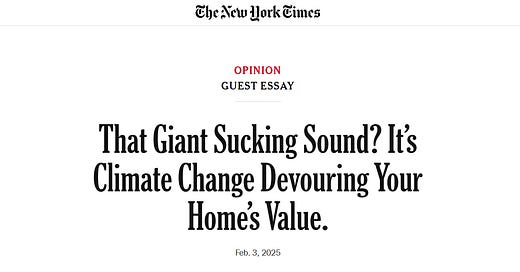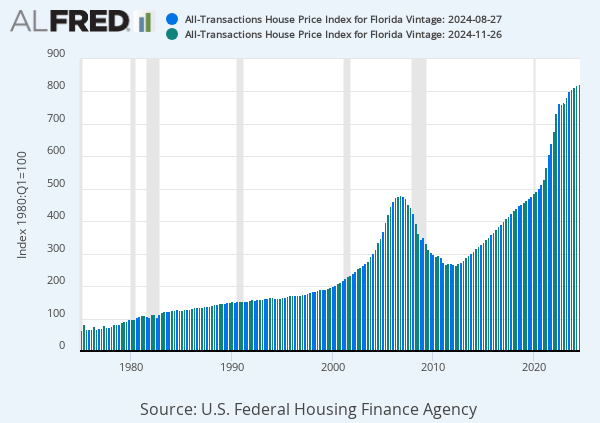For decades, we’ve been bombarded with claims that climate change is destroying the housing market, with apocalyptic predictions of collapsing property values in high-risk areas like Florida and California. The media, with the help of the climate industrial complex, insists that sea-level rise, wildfires, and extreme weather are rendering homes uninsurable and undesirable. But when we peel back the layers of fear-mongering, what do we find? A thriving housing market, rising prices, and no data to support the narrative of catastrophe.
This article dives deep into the myths, the numbers, and the motives driving the climate housing panic. Spoiler alert: It’s not climate change you need to worry about, it’s the manipulation of truth for power and profit. First, we’ll examine Florida and California, two states frequently cited as examples of climate-induced real estate crises. Then, we’ll break down the real factors driving insurance price increases, most of which have little to do with climate change. Finally, we’ll explore whether weather-related damages are truly escalating or if this is just another manufactured panic.
Florida Housing Prices: The Reality
Florida is frequently cited as a prime example of climate-driven property decline. For example, a recent opinion piece in the New York Times…
However, the data tells a different story. The All-Transactions House Price Index for Florida, sourced from FRED (Federal Reserve Economic Data), shows a clear upward trend over the last several decades. Far from collapsing, property values have soared, particularly after the 2008 financial crisis. Even during periods of heightened climate rhetoric, Florida’s real estate market has thrived.
If climate change were truly scaring off buyers, why haven’t we seen a decline in prices? The reality is simpler. Florida remains a top destination for retirees and remote workers due to its lifestyle and tax advantages. Rising regulatory and construction costs, rather than climate fears, are the primary pressures on housing markets.
Fresno, CA: Challenging the Narrative
Business Insider similarly points to California as a region where climate change is allegedly impacting property values, citing inland cities like Fresno.

Having lived in Fresno from 1985 to 1997 and with family still owning property there, I have firsthand knowledge of the area. Fresno’s housing market does not align with this alarmist narrative.
The All-Transactions House Price Index for Fresno shows consistent growth, reflecting its growing appeal as an affordable alternative to California’s coastal cities. Rising property values in Fresno have more to do with population shifts and regulatory challenges than with climate concerns. Claims that climate change is undermining property markets in Fresno fail to acknowledge these local economic realities.
The Truth About Rising Insurance Costs
Both articles conveniently blame rising insurance premiums on climate risks while ignoring regulatory and economic factors that play a much larger role. As noted by The Financial Times, insurance premiums are often driven by stricter regulations requiring higher capital reserves for insurers.
Keep reading with a 7-day free trial
Subscribe to Irrational Fear to keep reading this post and get 7 days of free access to the full post archives.






